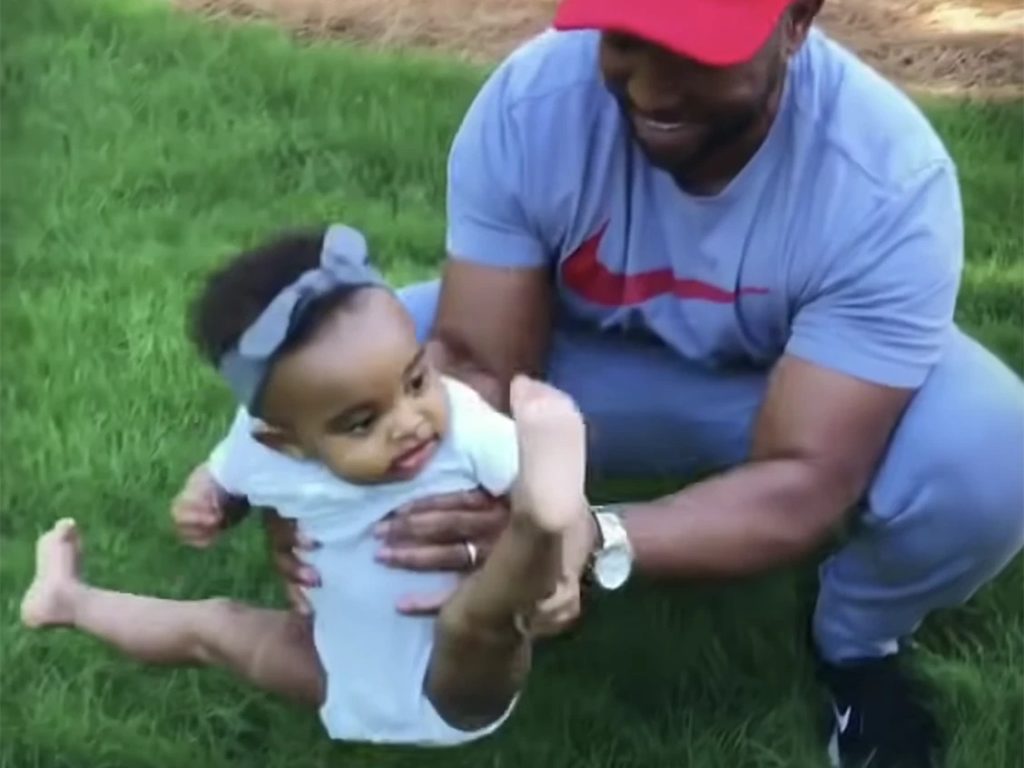Ever wondered why your baby performs gymnastics to avoid the green grass underfoot? It’s not just the ticklish touch or rough texture of grass that causes this.
You’re about to delve into an intriguing exploration. We’ll unravel the complex sensory overload, developmental factors, and potential evolutionary adaptions behind this peculiar behavior.
So, gear up for a fascinating journey into your baby’s world and discover why grass might be their kryptonite.
Sensory Overload From Grass
Experiencing a sensory overload, your baby might actively avoid grass due to its overwhelming texture and vibrant color. The blades of grass, their unevenness, and their itchy sensation could be too much for your baby’s developing nervous system.
Sounds, sights, and physical sensations are all significantly more intense for them. The wetness of the grass after a rain, or its roughness on a hot, dry day, can be an additional sensory challenge. Your baby’s reaction isn’t just eccentricity. It’s a real physical response to an overload of sensory input.
Older children, especially those with sensory processing issues, may also avoid grass for the same reasons. Understanding these factors can help you empathize with your baby’s seemingly unusual behavior.
Innate Wariness of Vegetation
You mightn’t realize it, but your baby’s instinctual wariness of vegetation, including grass, plays a significant role in their avoidance. This innate caution isn’t just about the texture or sensory overload; it’s a deep-seated protective instinct.
- Babies, with their limited understanding of the world, instinctively play safe by avoiding potentially harmful elements.
- This wariness might be a remnant of our ancestors’ need to avoid toxic or harmful vegetation.
- It’s also a testament to their developing survival instincts, keeping away from what they haven’t learned about yet.
Evolutionary Adaptation Theories
Let’s explore the fascinating world of evolutionary adaptation theories, which might explain why your little one instinctively avoids grass.
This avoidance may have roots in our ancestors’ need to avoid potentially toxic plants. Babies explore the world through touch and taste, making them particularly vulnerable to plant toxins. An innate aversion to vegetation could be an evolutionary adaptation to protect them from possible harm.
This theory suggests that your baby’s reluctance to romp in the grass could be a survival instinct passed down through generations. So, while it might make your picnics a little tricky, remember, it’s likely just your baby’s way of navigating their environment safely.
Babies’ Unique Behavior Explained
Drawing on our understanding of evolutionary adaptations, consider how your baby’s unique behaviors, like avoiding grass, might be a fascinating way of exploring and making sense of their world. Babies’ aversion to grass might be a survival instinct passed down through generations.
Here are some key insights:
- Babies’ senses are highly receptive to their surroundings. The sensation of grass, which can feel prickly or scratchy, might be too overwhelming for their developing senses.
- It’s also theorized that this aversion could protect against allergies or skin irritations.
- This instinctual avoidance could also safeguard against potential dangers, such as insects or sharp objects, that lurk in the grass.
Understanding these behaviors can offer unique insight into your baby’s world!
Different Factors Influencing Aversion
Several factors can influence your baby’s aversion to grass, and it’s important to consider all of them.
The texture of grass might be uncomfortable for your baby’s sensitive skin.
It’s also possible that the sensory overload from the color, smell, and movement of grass is overwhelming for their developing nervous system.
Your baby’s sensory processing capabilities significantly impact their reaction to grass.
Past experiences or exposure to grass can also play a role.
Cultural and societal influences may shape their attitudes towards grass.
Lastly, your baby may instinctively avoid grass as part of a natural protective instinct against potentially harmful plants.
Understanding these factors can help you support your baby’s exploration of their environment.
Conclusion
So, next time you see your little one avoiding the grass like hot lava, remember this isn’t just about a ticklish sensation.
It’s a deep-seated response, shaped by their delicate senses, an instinctual wariness, and possibly even our ancestors’ survival tactics.
This grass acrobatics show is one of the many fascinating ways your baby navigates and learns about their world.
You’re witnessing not just a peculiar behavior but a dance of evolution and adaptation.
Reference:
https://nationalpost.com/life/why-do-babies-hate-grass
https://www.indiatimes.com/trending/human-interest/why-babies-dont-like-touching-grass-579716.html
